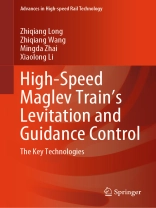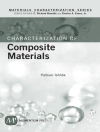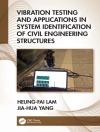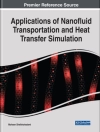This book highlights the system modeling, control, diagnosis and fault-tolerant design of the suspension, and guidance system of the high-speed maglev train based on electromagnetic suspension technology. The electromagnetic suspension technology has been widely used in real-life engineering, including maglev trains, magnetic bearings, magnetic levitation vibration isolators, magnetic suspension and balance systems for wind tunnels, etc.
Based on the academic researches, engineering applications, and technical innovations of high-speed maglev trains carried out by the maglev team of the National University of Defense Technology, this book summarizes the technical achievements in the field of levitation and guidance control technology of high-speed maglev train.
It analyzes the research status and challenges of the suspension control technology of the electromagnetic suspension maglev train. The suspension, guidance system modeling, and controller design of the high-speed maglev train are described in detail. The performance index and performance evaluation method of the levitation and guidance system under various working conditions are analyzed respectively. A suspension scheme of permanent magnet electromagnetic hybrid suspension high-speed maglev train is proposed, and the results of the vehicle test are given in order to further improve the suspension energy consumption and heating of electromagnetic suspension high-speed maglev train. The suspension and guidance fault diagnosis and tolerant control methods of the high-speed maglev train are studied to improve the system’s safety and reliability. The research and application results of suspension control technology of electromagnetic suspension maglev train are fully displayed for readers.
This book is intended for researchers, scientists, engineers, and graduate students involved in the rail transit industry, train control and diagnosis, and maglev technology.
Зміст
Introduction.- Technology analysis of EMS high-speed maglev system.- Controller design of high-speed maglev train levitation system.- Controller design of high-speed maglev train guidance system.- Performance evaluation of levitation control system.- Performance evaluation of guidance control system.- Control Technology of High-Speed PEM Hybrid Levitation System.- Fault Diagnosis of High-Speed PEM Hybrid Levitation System.- Fault Tolerant Control of High-Speed PEM Hybrid Levitation System.
Про автора
Zhiqiang Long received the B.S. degree in automation from Huazhong University of Science and Technology, Wuhan, China, in 1988, the M.S. degree in flight mechanics from Harbin Institute of Technology, Harbin, China, in 1991, and the Ph.D. degree in control science and engineering from National University of Defense Technology, Changsha, China, in 2010. Currently, he works with National University of Defense Technology as Professor and Head Research Engineer of the Engineering Research Center of Maglev Technology. His research interests include magnetic levitation control, fault diagnosis, tolerant control for maglev trains, new maglev technology, etc.
He is Technical Expert in the medium- and low-speed and high-speed maglev in China, an expert of the 863 professional groups of China’s Tenth Five-year Plan, and Chief Designer of the maglev technology orientation of the National University of Defense Technology.
Zhiqiang Wang received the B.S. degree in automation from Beijing Institute of Technology, Beijing, China, in 2012, M.S. and Ph.D. degree in control science and engineering from National University of Defense Technology, Changsha, China, in 2014 and 2019, separately. He was also with Institute for Automatic Control and Complex Systems at the University of Duisburg-Essen, Duisburg, Germany, from 2017 to 2018. His research interests include fault diagnosis and fault-tolerant control for maglev trains.
Mingda Zhai received the B.S. degree in automation from Northeastern University, Shenyang, China, in 2013, the M.S. degree in control science and engineering from National University of Defense Technology, Changsha, China, in 2015, and the Ph.D. degree in control science and engineering from National University of Defense Technology, Changsha, China, in 2019. His research interests include magnetic levitation control, performance monitoring and optimization, new maglev technology etc.
Xiaolong Li received his B.S. in Automation from the National University of Defense Technology in 2002 and his Ph.D. in Control Science and Engineering from the National University of Defense Technology in 2010. Currently, he is Associate Researcher at the Engineering Research Center for Magnetic Levitation Technology at the National University of Defense Technology. He is mainly engaged in the engineering of maglev trains and researching new maglev technology.












